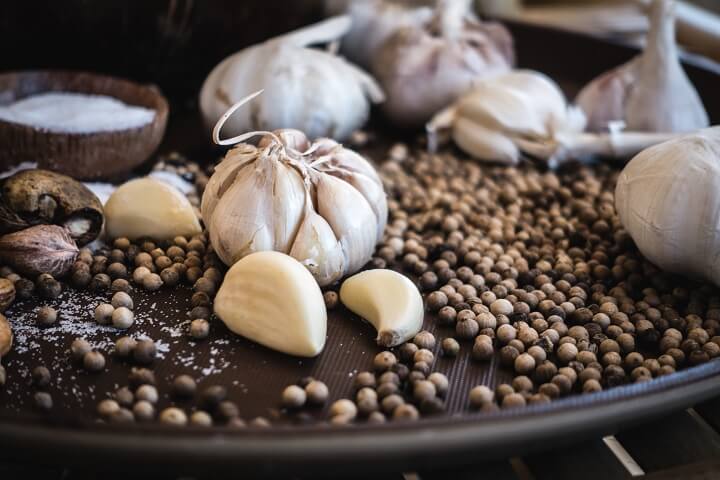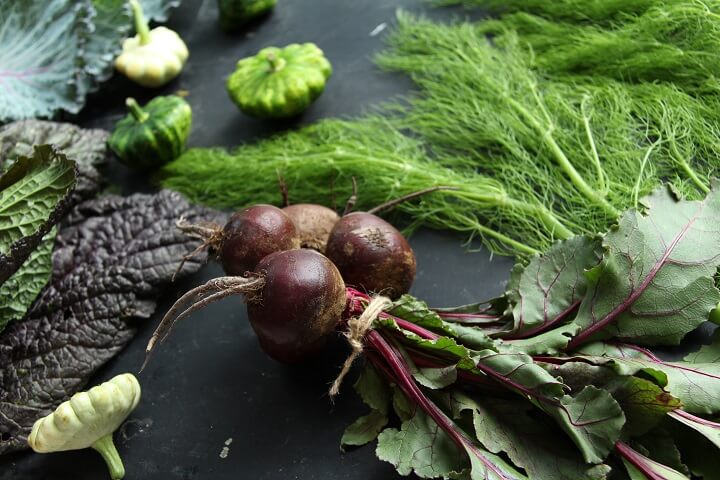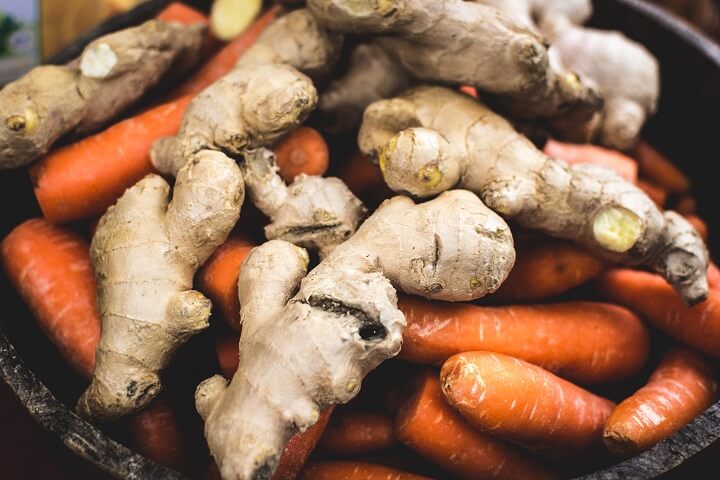High blood pressure is a serious health condition that affects over 30% of the world’s population. It is the leading modifiable risk factor for heart disease and early death, meaning that it can be prevented or controlled through lifestyle changes.
There are many things you can do to lower your blood pressure, including following a healthy diet, quitting smoking, cutting back on alcohol, exercising, and losing excess body fat. Certain supplements have also been shown to help reduce high blood pressure.
- High blood pressure can cause a number of serious health problems, including heart disease, stroke, and kidney disease.
- Even a small reduction in blood pressure can significantly reduce your risk of these health problems.
- The supplements listed in the article have been shown to be safe and effective in lowering blood pressure.
In this article, we will discuss 12 supplements that may help lower your blood pressure. We will also provide information on how to take these supplements safely and effectively.
1- Garlic.

The importance of garlic in promoting health cannot be overstated, as it has been associated with various benefits, including a potential reduction in blood pressure and a lowered risk of heart disease.
Incorporating a garlic supplement into your daily routine may offer a natural way to help lower blood pressure. Remarkably, a comprehensive review of 12 studies revealed that garlic supplements contributed to a notable decrease in both systolic and diastolic blood pressure, with an average reduction of 8.3 mmHg and 5.5 mmHg, respectively.
This remarkable finding led researchers to estimate that such reductions in blood pressure could potentially translate into a significant decrease of up to 40% in the risk of stroke, heart attack, and coronary artery disease. Embracing the power of garlic supplementation might be a simple yet impactful step you can take to safeguard your cardiovascular health and well-being. By considering this evidence-backed approach, you are empowering yourself with knowledge and making a conscious choice to prioritize your heart health. Remember, small changes can yield significant benefits, and the journey to a healthier heart starts with informed decisions and a commitment to self-care.
2- Magnesium.
Magnesium is a critical mineral for various bodily functions, including blood pressure regulation. Studies suggest that magnesium supplements can reduce blood pressure by increasing nitric oxide production, which relaxes blood vessels. Research shows that taking 365–450 mg of magnesium daily for about 3.6 months significantly lowers blood pressure in those with chronic conditions.
Additionally, a review of 10 studies involving over 200,000 people indicates that higher dietary magnesium intake may protect against high blood pressure, with each 100-mg daily increase linked to a 5% risk reduction. Embracing magnesium supplementation or a magnesium-rich diet can promote better cardiovascular health.
Grab your need of magnesium: https://amzn.to/3qoP4SR
3- Vitamin D.
Compelling research indicates a significant correlation between low vitamin D levels and high blood pressure in individuals. Moreover, evidence suggests that maintaining higher blood levels of vitamin D could potentially act as a protective measure against hypertension.
Remarkably, a thorough review of data from over 300,000 people revealed that individuals with the highest vitamin D levels enjoyed up to a 30% reduced risk of developing high blood pressure compared to those with lower levels.
Consequently, it is essential for individuals with high blood pressure to have their vitamin D levels assessed and consider appropriate supplementation. By proactively addressing this link between vitamin D and blood pressure, one can potentially take a crucial step toward better cardiovascular health and overall well-being.
Grab your need of Vitamin D: https://amzn.to/3QxE14f
4- Beetroot.

Beetroot supplements have gained popularity among athletes due to their ability to enhance exercise performance by improving blood flow and oxygen delivery to muscles.
Beyond their benefits for athletes, these supplements have demonstrated promising effects on blood pressure reduction, both in individuals with and without hypertension.
A noteworthy example is a comprehensive review of 11 studies, which highlighted that beetroot juice effectively lowered blood pressure levels in individuals, regardless of whether they had a pre-existing high blood pressure condition.
The potential of beetroot supplements to positively impact both exercise performance and blood pressure levels makes them an intriguing option for athletes and non-athletes alike. Embracing these supplements might offer a natural and effective means of supporting cardiovascular health while optimizing physical performance.
5- Vitamin C.
Understanding the significance of vitamin C goes beyond its role as a water-soluble nutrient crucial for essential bodily processes. Recent research brings attention to the potential benefits of vitamin C supplements in blood pressure management, making this information of utmost importance.
In a comprehensive review encompassing 8 studies focused on individuals with high blood pressure, the compelling evidence revealed that a daily intake of 300–1,000 mg of vitamin C significantly reduced their blood pressure levels.
Furthermore, emerging findings indicate a vital link between vitamin C levels and blood pressure, underscoring the importance of maintaining optimal vitamin C levels to potentially reduce the risk of hypertension. Those with insufficient vitamin C levels may face a higher likelihood of developing high blood pressure.
Grab your need of Vitamin C: https://amzn.to/3QOWFoL
6- Fish Oil.
The profound impact of fish oil on heart health cannot be overstated, as it addresses multiple factors contributing to cardiovascular well-being, including blood lipid levels, inflammation, and high blood pressure. Notably, high-dose fish oil supplements have shown considerable potential for individuals with high blood pressure, making this information truly essential.
In a comprehensive review, the omega-3 fats EPA and DHA, abundantly found in fish oil supplements, demonstrated remarkable results. Participants with high blood pressure, not using medications, experienced significant reductions of 4.51 mmHg in systolic and 3.05 mmHg in diastolic blood pressure after taking these supplements.
Furthermore, scientific research has unveiled a significant correlation between higher blood levels of omega-3s and a potential protective effect against high blood pressure, further emphasizing the critical role of fish oil in supporting heart health.
Grab your need of Fish Oil: https://amzn.to/3KwAq2A
7- Melatonin.
Melatonin, a hormone naturally produced by the body and also available as a supplement, is renowned for its sleep-promoting properties. However, its potential extends far beyond that, encompassing other significant health benefits.
Notably, melatonin supplements have shown promise in reducing blood pressure, particularly in individuals with elevated levels. A comprehensive review involving 5 studies highlighted the considerable impact of melatonin supplements on blood pressure, leading to noteworthy reductions when compared to control groups.
Furthermore, emerging evidence indicates that low melatonin production may serve as a risk factor for high blood pressure, particularly in women.
Grab your need of Melatonin: https://amzn.to/3KDgwmH
8- B vitamins.
The impact of certain B vitamins on blood pressure reduction is noteworthy and should not be overlooked.
Vitamin B2, also known as riboflavin, has demonstrated promising results in adults with methylenetetrahydrofolate reductase (MTHFR) gene mutations, a condition associated with increased susceptibility to high blood pressure. Studies reveal that vitamin B2 supplements may effectively help lower blood pressure in these individuals.
Similarly, folic acid and folate supplements (vitamin B9) have shown the potential in reducing blood pressure levels in individuals with heart disease. What’s even more fascinating is that higher folate intake during young adulthood could serve as a protective measure against heart disease later in life.
While animal studies suggest that vitamin B6 supplements may also contribute to blood pressure reduction, further research in humans is warranted.
Grab your need of B Vitamins: https://amzn.to/3YtWqkD
9- Potassium.
Potassium stands as one of the most well-known and impactful nutritional supplements for blood pressure regulation. Extensive research indicates that elevating potassium intake, whether through dietary sources or supplements, can effectively lower high blood pressure levels.
This essential mineral works by facilitating the excretion of sodium through urine, which in turn promotes blood vessel relaxation. The combined effect of these mechanisms contributes to improved blood pressure management.
A comprehensive review of 23 studies solidifies the benefits of potassium supplementation, revealing a significant and noteworthy reduction in blood pressure when compared to a placebo.
Grab your need of Potassium: https://amzn.to/3QxGgEH
10- Green Tea.

The health benefits attributed to green tea are nothing short of remarkable, and its positive impact on maintaining healthy blood pressure levels is particularly noteworthy.
An insightful review of 24 studies brought to light the significant advantages of consuming green tea, either through supplements or as a beverage, over a period of 3 to 16 weeks. This consumption led to notable reductions in blood pressure levels, benefiting both individuals with and without elevated blood pressure.
While these results are indeed promising and encouraging, it is essential to recognize the need for more extensive and long-term studies to further solidify the findings and better understand the comprehensive impact of green tea on blood pressure management.
Grab your need from Green Tea https://amzn.to/3Ypd1Gh
11- Ginger.

The potential of high-dose ginger supplements in reducing high blood pressure is supported by compelling research.
A thorough review of 6 studies revealed that when ginger supplements were taken in doses of 3 grams or more per day, for a duration of 8 weeks or fewer, significant reductions in blood pressure were observed in individuals aged 50 years and younger.
Furthermore, a 12-week study involving 37 participants with metabolic syndrome, a group of conditions associated with an increased risk of heart disease, demonstrated that the daily intake of 2 grams of ginger powder led to noteworthy reductions in blood pressure, triglycerides, and fasting blood sugar levels compared to a placebo.
12- L-arginine.
L-arginine, an essential amino acid, shows promising potential in lowering blood pressure levels when taken as a supplement.
An extensive umbrella review, comprising 7 meta-analyses involving 4,676 individuals, revealed compelling evidence supporting the efficacy of L-arginine supplements in reducing total blood pressure in those with high levels. Additionally, pregnant women with high blood pressure experienced a significant reduction in diastolic blood pressure after L-arginine supplementation.
Furthermore, the same review highlighted the beneficial impact of L-arginine supplements on blood vessel function and blood flow, further emphasizing its positive effects on cardiovascular health.
Grab your need of L-arginine https://amzn.to/3Yu4fXl
Things To Take Into Perspective.
- It is important to be aware that some dietary supplements can interact with prescription medications, such as blood pressure medication.
- Some dietary supplements, such as ginseng and ginkgo biloba, can interact with blood pressure medication and cause side effects.
- In addition to being aware of potential interactions, it is also important to choose a high-quality brand of dietary supplements in case you tried to get the supplements from another place. When possible, look for supplements that have been third-party tested for purity by organizations such as the United States Pharmacopeia (USP) or NSF International.
